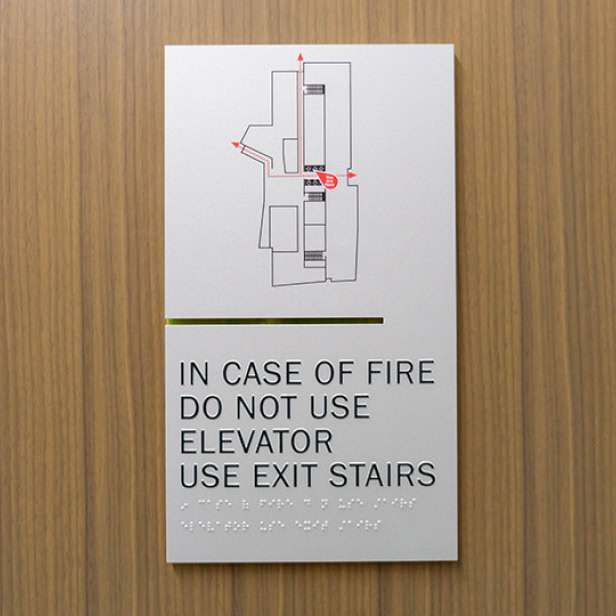Building Signs

Functions
Visibility: Well-designed signs make a building or business easy to locate, helping to attract foot traffic and guide visitors.
Branding: Signs often incorporate corporate colors, logos, and fonts, reinforcing brand identity and increasing brand recognition.
Communication: Signs provide essential information such as the business name, operating hours, and directional guidance.
Compliance: In many areas, signs must adhere to local zoning and ADA (Americans with Disabilities Act) regulations, ensuring accessibility and safety.
Consistency: Signage should be consistent in style and color with the overall brand to enhance corporate identity.
Durability: Materials should be chosen not only for their aesthetic appeal but also for their durability and ability to withstand local weather conditions.
Visibility: It’s important to consider size, color contrast, and lighting when designing signs to ensure they are easily readable from a distance and in various lighting conditions.
Compliance: Ensure that all signage complies with local codes and regulations, including those related to safety and accessibility.
Building signs are more than just a functional element; they are a critical part of a company’s marketing and branding strategy.
A well-designed building sign not only directs and informs but also boosts brand visibility and creates a lasting impression. Whether it’s bold channel letters, elegant dimensional signage, or practical directional signs, the right building signage strategy can have a significant impact on how a business is perceived.



